Erophele
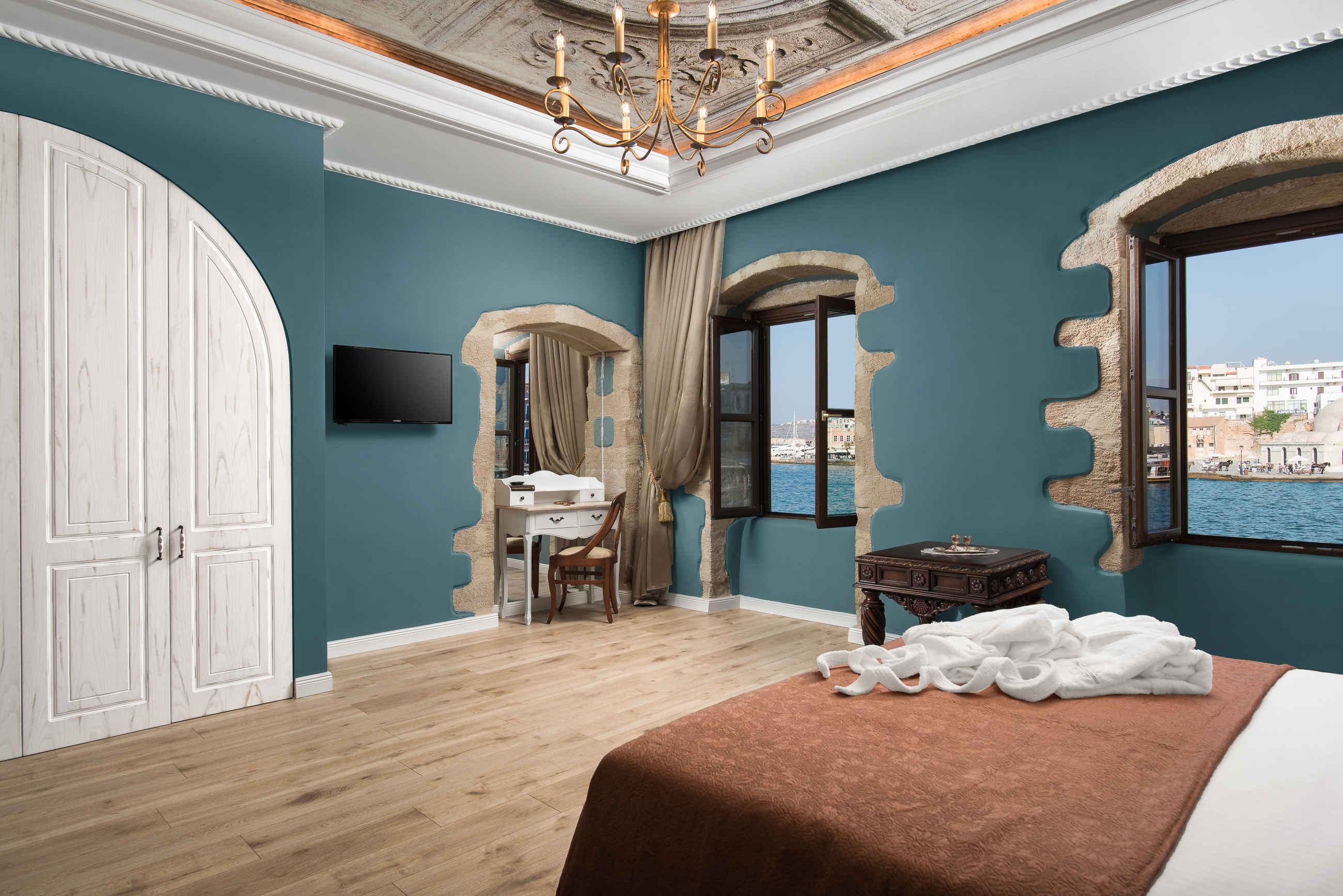
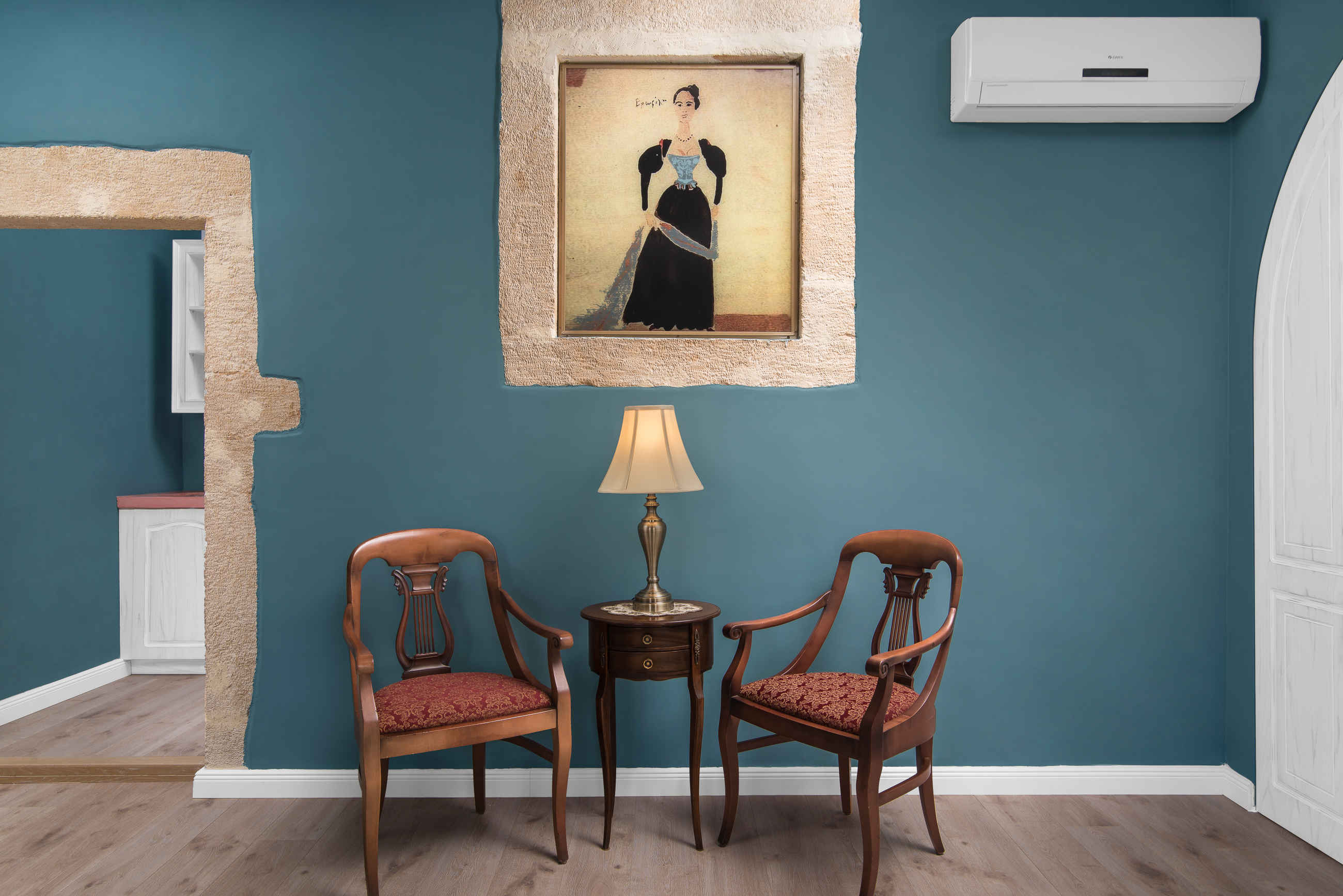
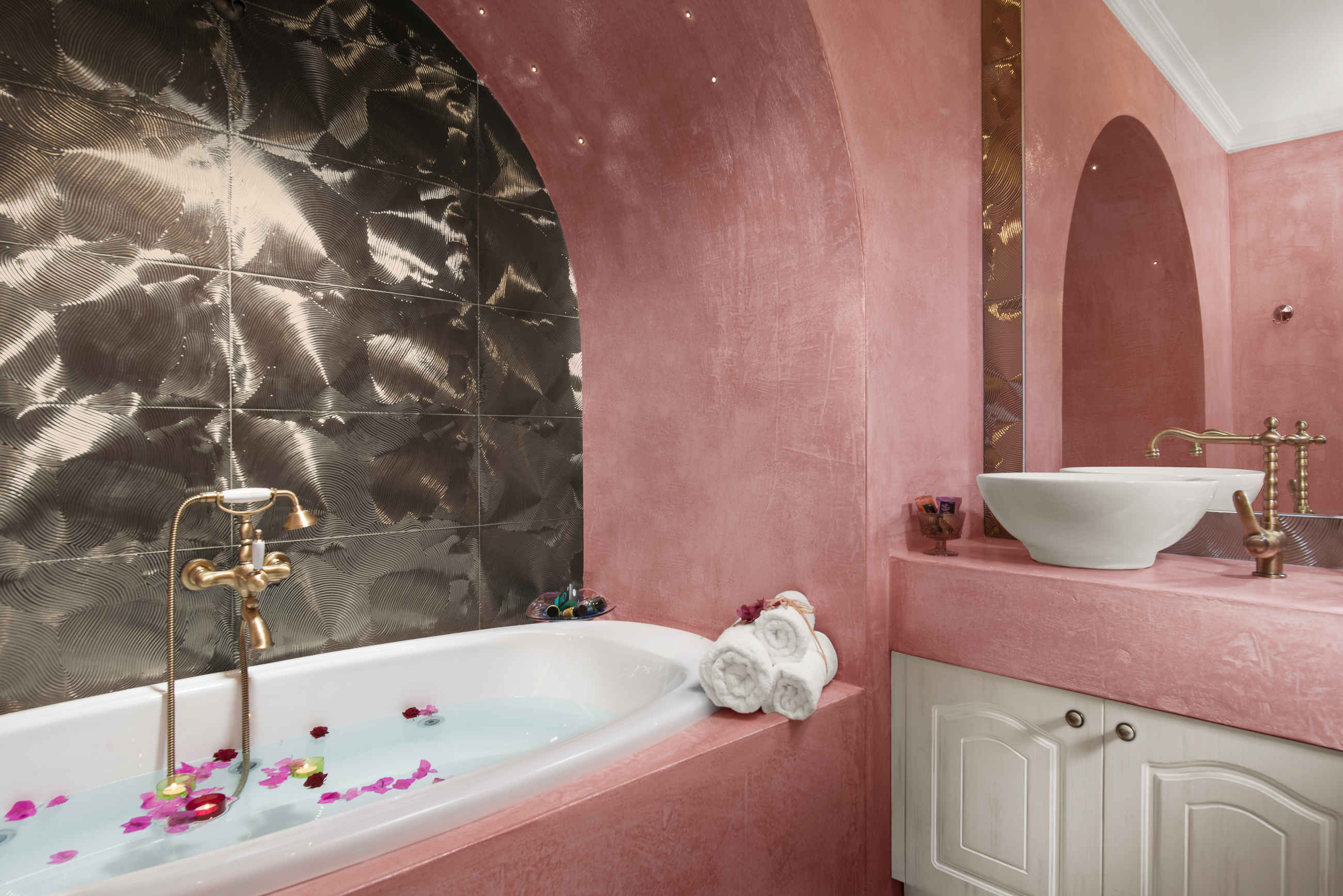
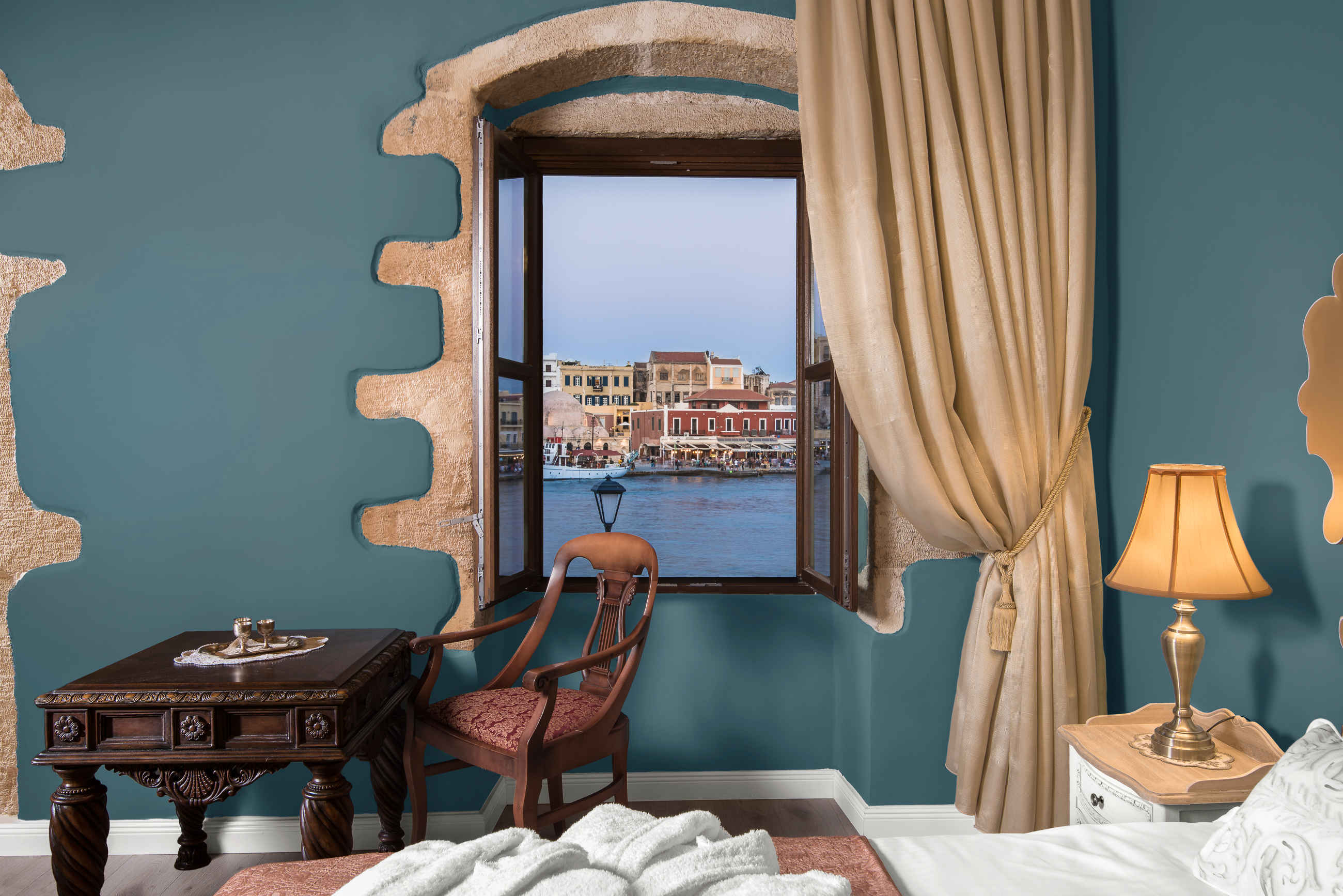
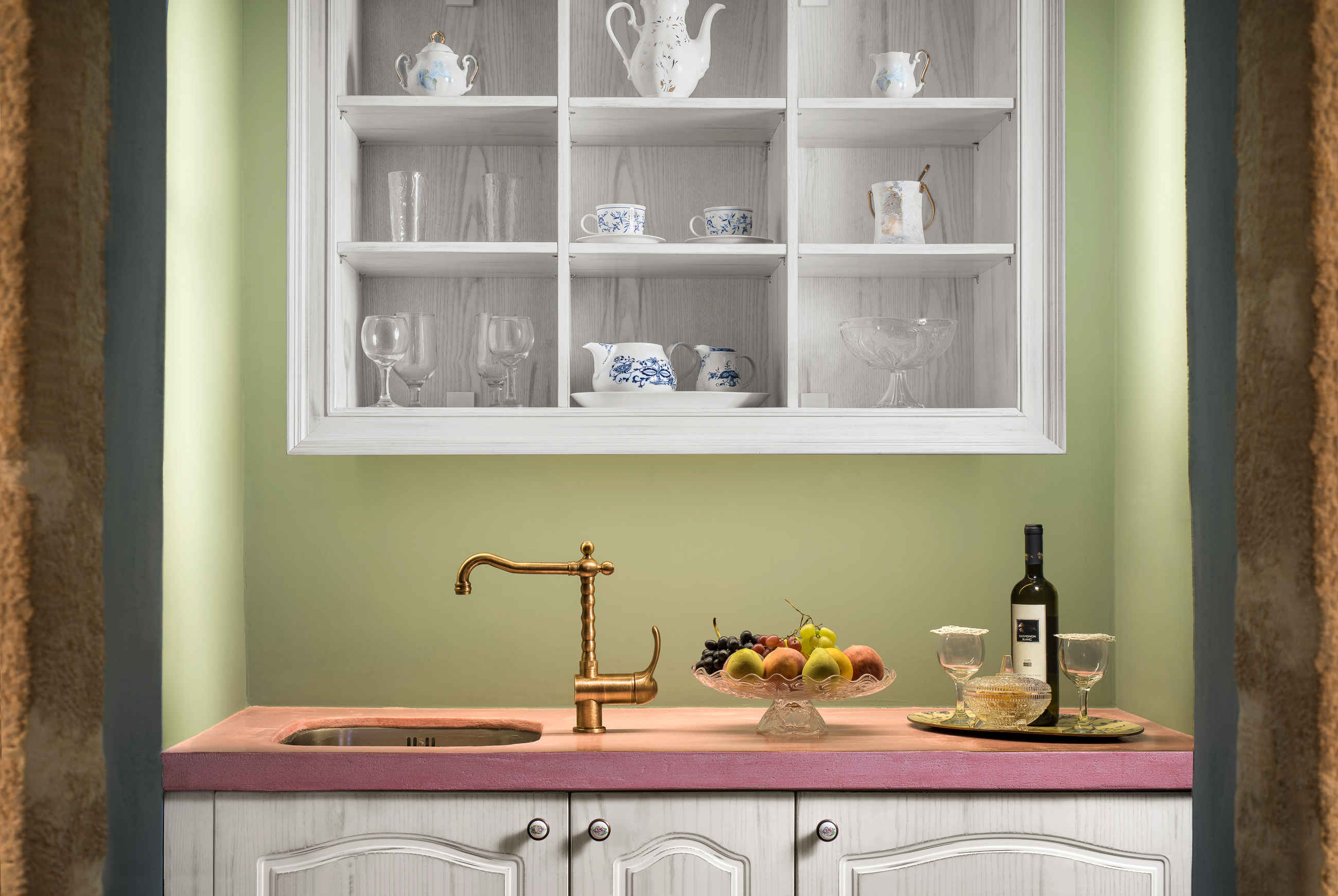
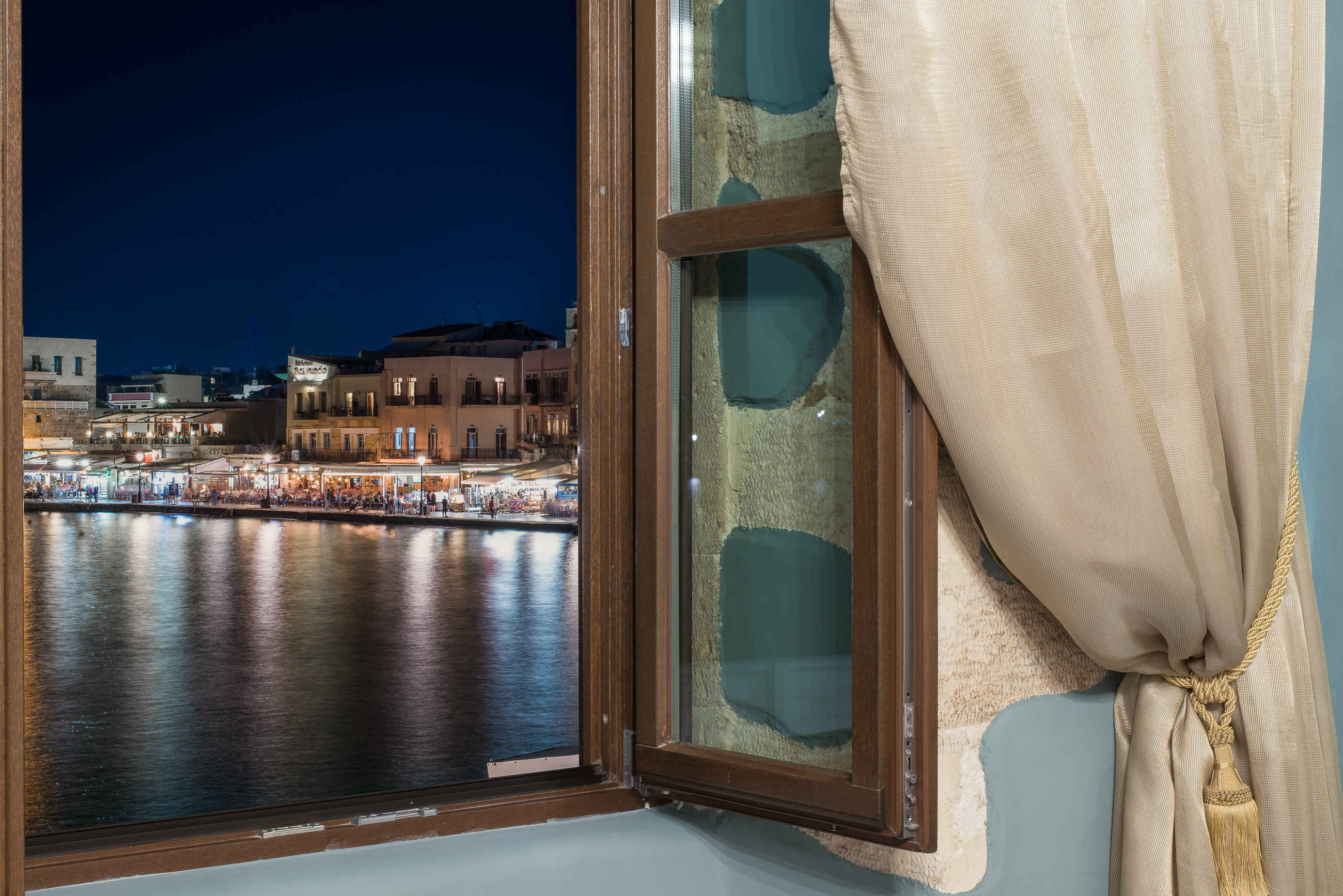






Conveniences
This spacious and ambient room with an enchanting view to the whole of the Old Port of Chania is inspired by the dramatic heroine of the of the 16th century Cretan Tragedy “Erophéle” by Georgios Hortátsis and it is equipped with all contemporary conveniences.
History
“Erophéle” was composed around 1595 (since it is referred to the plague epidemic which struck Crete between 1592 and 1595) and was first published in Venice in 1637. It is written in rhyming 15-syllable lyrics except from the Chorus songs, which are written in 11-syllables, and its story takes place in Egypt. The play is prologued by Death himself, who refers to his dominion and the vanity of glory and the material gods; however the first Chorus song ends with a praise to the almighty power of Love (Éros).
The daughter of Filógonos, Erophéle, secretly marries a young army man, Panáretos. Filógonos decides to marry her with an Eastern king, his opponent, in order to create a friendship between them. Thus, he turns to Panáretos for help so he could persuade her to accept this marriage. This dramatic antinomy leads to the revelation of the couple’s relationships. Filógonos executes Panáreto and sends his daughter his head, heart and hands, offering these as a wedding gift. Erophéle commits suicide and the girls of her court (as the “chorus” in ancient Greek tragedy) kill the inhuman father.
